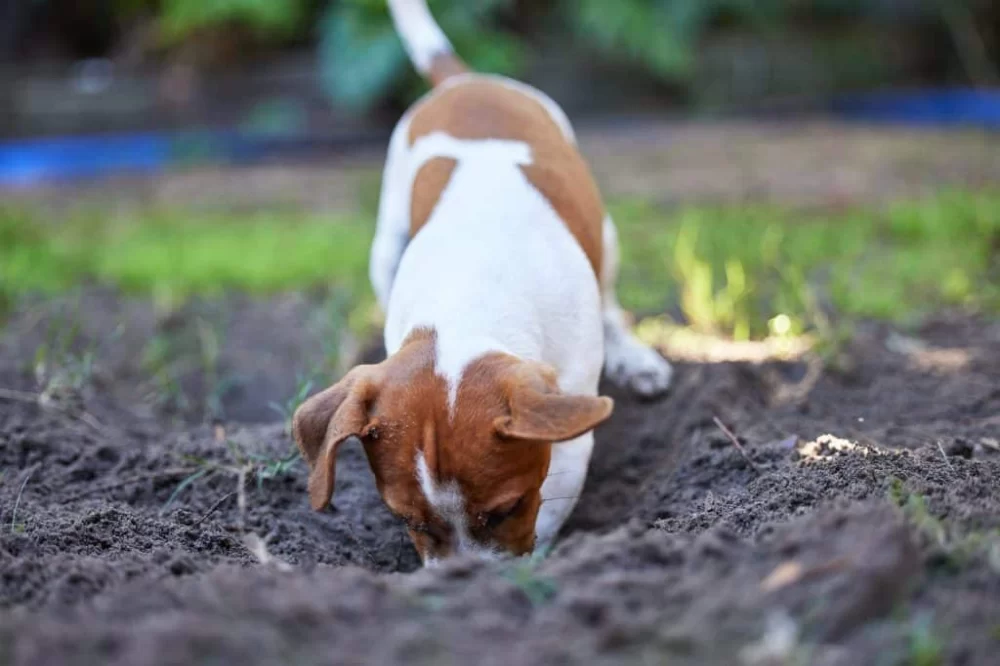How to Teach a Dog to Stop Digging Up the Yard
If you’ve ever experienced the frustration of finding your dog digging up your yard, you’re not alone. As a dog owner, I know how challenging it can be to keep your yard looking pristine when your dog insists on digging holes all over the place. Whether it’s just a playful habit, boredom, or an attempt to escape, digging is a common behavior that many dog owners face. After dealing with it firsthand, I want to share some practical steps and insights on how to teach your dog to stop digging up the yard.

1008 W Hazelwood Dr, Urbana, IL 61802, USA
See Details1. Understanding Why Dogs Dig
Before jumping into solutions, it’s important to understand why dogs dig. This behavior can stem from a variety of reasons, and addressing the root cause is key to stopping it. When my dog, a lively Golden Retriever, first started digging up our garden, I spent time observing his behavior to figure out what was causing it. Here are some of the common reasons why dogs dig:
- Boredom: Dogs who lack physical or mental stimulation often dig to entertain themselves. My dog, especially as a puppy, would dig in the yard when he wasn’t getting enough exercise or playtime.
- Escape Attempts: Some dogs dig because they’re trying to escape from their environment. This is particularly common in dogs who feel confined or anxious in their yard.
- Comfort and Shelter: Dogs sometimes dig to create a cool or comfortable spot, especially on hot days. My dog would often dig small holes to lie in when the ground was warm or when he felt too hot.
- Hunting or Scavenging: Digging can be a natural instinct if a dog is trying to find small animals, insects, or objects buried in the ground. I noticed that my dog would dig near certain areas where squirrels or other creatures might have been.
- Stress or Anxiety: If a dog is feeling stressed, anxious, or lonely, they might dig as a coping mechanism. My dog’s digging behavior worsened during periods when I was away, indicating some separation anxiety.
Once I understood the reasons behind the digging, I was able to address the problem more effectively. Whether it’s boredom or anxiety, knowing the cause is half the battle in preventing your dog from digging up the yard.
2. Provide Adequate Exercise and Mental Stimulation
One of the main reasons my dog dug up the yard was because he wasn’t getting enough exercise. Dogs, especially energetic breeds, need plenty of physical activity to burn off their excess energy. After noticing that my dog would dig when he seemed restless, I made a conscious effort to give him more exercise.
Here are some ways to provide adequate exercise and mental stimulation:
- Daily Walks: I started taking my dog for longer walks every day, making sure he got a good amount of exercise. Not only did this tire him out, but it also helped him release pent-up energy in a positive way.
- Interactive Toys: Puzzle toys and treat-dispensing toys became a part of our routine. These toys keep my dog’s mind occupied, preventing him from resorting to digging out of boredom.
- Playtime and Training Sessions: I set aside time every day to play fetch, tug-of-war, and work on basic obedience training. These activities not only provided physical exercise but also mental stimulation, which kept him distracted from digging.
Providing regular exercise and engaging activities helped my dog release his energy in more productive ways, making him less likely to dig for entertainment.
3. Create a Designated Digging Area
If your dog loves to dig, one way to redirect this behavior is by creating a designated digging area in your yard. I decided to set aside a small section of the garden specifically for my dog to dig in. This gave him a place to dig without ruining the rest of the yard.
Here’s how I did it:
- Choose the Right Spot: I selected a corner of the yard away from garden beds and valuable landscaping to avoid any further destruction.
- Encourage Digging in the New Area: I buried a few of my dog’s favorite toys in the designated area. This helped him associate that spot with fun and reward.
- Consistency: Every time my dog started to dig in the wrong area, I gently redirected him to the designated spot and praised him when he dug there.
This solution worked well for us because my dog was able to dig to his heart’s content without destroying the rest of the yard. It’s important to consistently reinforce this behavior by redirecting your dog whenever they dig in the wrong spot.
4. Address Anxiety and Stress
As I mentioned, digging can sometimes be a sign of anxiety or stress, especially if your dog is left alone for long periods or feels insecure in their environment. My dog’s digging behavior intensified whenever I was away for work, which pointed to separation anxiety.
To help alleviate his stress, I implemented a few strategies:
- Comfort Items: I made sure to leave behind his favorite toys or a worn piece of clothing that smelled like me. This helped calm him down when I wasn’t around.
- Crate Training: Crate training became a helpful tool for managing anxiety. I started crating my dog when I was gone, making the space a safe and comfortable place for him.
- Calming Aids: I used natural calming products like pheromone diffusers or calming music to help my dog relax when left alone.
Addressing his anxiety made a significant difference in reducing his urge to dig. If you believe that anxiety or stress is the cause of your dog’s digging, these techniques can help reduce their anxiety and curb the behavior.
5. Correcting the Behavior Using Positive Reinforcement
Positive reinforcement is an essential tool in teaching a dog to stop digging. I used rewards and praise to reinforce good behavior, which helped my dog understand what was expected of him.
Here’s how I applied positive reinforcement:
- Redirecting Digging Behavior: Every time my dog started digging in the wrong area, I redirected him to a more appropriate activity like playing fetch or engaging with a toy. When he stopped digging and focused on the new activity, I immediately rewarded him with praise and treats.
- Reinforcing the Designated Digging Area: Whenever my dog dug in the designated digging area, I rewarded him with treats and praise to reinforce the behavior.
By consistently rewarding my dog for good behavior and redirecting him when necessary, I was able to effectively curb his digging habits.
6. Consider Professional Help if Needed
If you’ve tried the above methods and your dog’s digging persists, it might be time to consult a professional dog trainer or behaviorist. A professional can help identify the underlying cause of your dog’s digging and develop a customized training plan. I worked with a trainer who helped me understand the importance of consistency in behavior management and provided additional techniques tailored to my dog’s specific needs.
Conclusion: Stopping the Digging Behavior
Teaching your dog to stop digging up the yard requires patience, consistency, and understanding. By addressing the underlying causes, increasing physical and mental stimulation, providing a designated digging area, and using positive reinforcement, you can stop your dog’s digging habits and preserve the integrity of your yard. With these strategies, you’ll not only prevent digging but also strengthen your bond with your dog as you work together to correct the behavior.











